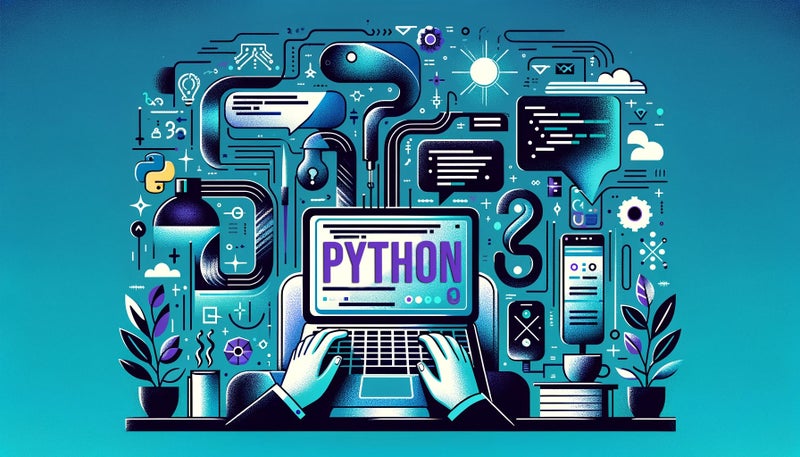Contents
- 1. What is Python and its typical use cases?
- 2. How do you manage memory in Python?
- 3. Can you explain the difference between lists and tuples in Python?
- 4. How would you implement a Python function to reverse a string?
- 5. Describe how you would handle error and exception handling in Python.
- 6. What are decorators in Python, and how would you use them?
- 7. Explain the concept of Inheritance in Python with an example.
- 8. How do you optimize Python code for performance?
- 9. What is a lambda function in Python, and where would you use it?
- 10. Can you discuss your experience with Python frameworks, such as Django or Flask?
Which Python interview questions will help you find a coding superstar? Python's growing popularity makes it a top skill for developers and an important focus for remote hiring managers.
With Python ranked as the 3rd most used programming language globally in 2023, asking the right questions will help you find your next rockstar hire.
Here are 10 insightful questions to help you hire the best Python programmers.
1. What is Python and its typical use cases?
Kick things off with a basic yet telling question. Ask candidates to explain what Python is and where they've seen it used (web dev, data science, automation…). Their answer should show that they understand its versatility.
2. How do you manage memory in Python?
Dig deeper with a question about Python's automatic memory management, garbage collection, and allocation strategies. This reveals their grasp of Python's inner workings and optimization techniques.
3. Can you explain the difference between lists and tuples in Python?
Test their data structure chops! Ask them to explain the differences between lists and tuples, including mutability, and when to choose one over the other. This shows they can apply theoretical knowledge to real-world scenarios.
4. How would you implement a Python function to reverse a string?
Throw in a theoretical (or practical) coding challenge! Ask how they'd reverse a string in Python. Look for their approach (slicing, built-in functions, loops) and the code's efficiency and readability.
5. Describe how you would handle error and exception handling in Python.
Gauge their coding finesse with a question about error handling. Discuss try-except blocks, catching specific exceptions, and even creating custom ones. This reveals their attention to detail and ability to write robust code.
6. What are decorators in Python, and how would you use them?
This question delves into advanced territory. Ask about decorators and how they've used them to enhance functions (caching, logging, performance). This showcases a deeper understanding of Python's capabilities.
7. Explain the concept of Inheritance in Python with an example.
This question tests understanding of object-oriented programming (OOP) principles in Python.
Discussing inheritance, method overriding, and the use of the super() function can show how well they understand and can apply OOP concepts in Python.
8. How do you optimize Python code for performance?
Performance matters! Ask about Python code optimization strategies like using built-in functions, optimizing loops, understanding algorithm complexity, and choosing efficient data structures. This reveals their ability to write scalable and efficient code.
9. What is a lambda function in Python, and where would you use it?
Check their grasp of functional programming with lambda functions. Ask where they'd use them (higher-order functions like map, filter, reduce) and in situations requiring anonymous functions.
10. Can you discuss your experience with Python frameworks, such as Django or Flask?
Uncover practical experience! Ask about their use of Python frameworks like Django or Flask.
Encourage them to share specific projects or challenges they tackled, revealing their hands-on experience and understanding of web development with Python.
Including these python interview questions in your hiring process can significantly enhance your ability to screen candidates. A good Python developer will always demonstrate problem-solving skills and creativity.
These Python interview questions will help you test their knowledge and skills. You’re well on your way to finding the perfect remote Python coder for your team. Good luck!







